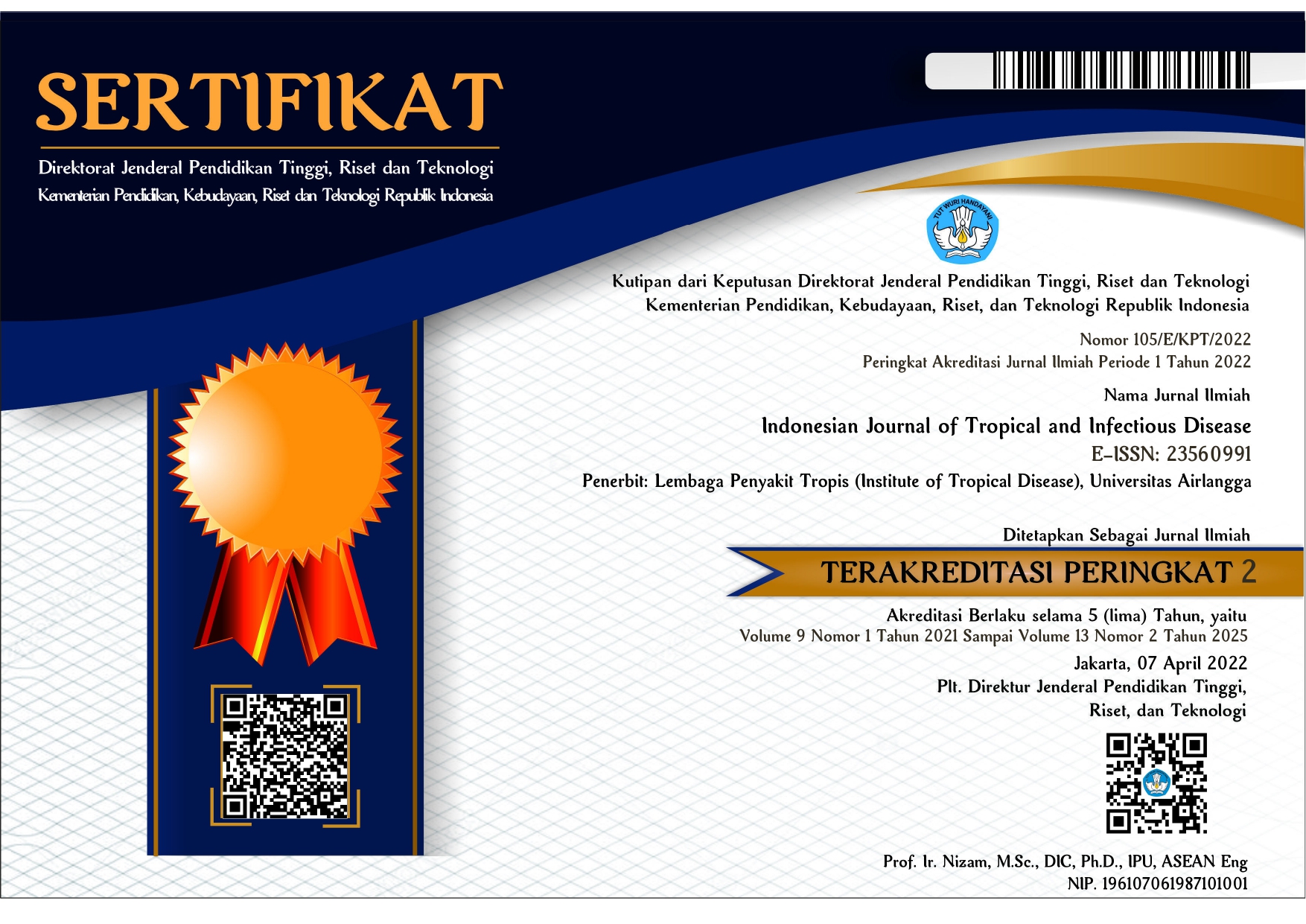MYCOBACTERIA AND OTHER ACID FAST ORGANISMS ASSOCIATED WITH PULMONARY DISEASE IN JOS, NIGERIA PULMONARY DISEASE AND ACID FAST ORGANISMS
Downloads
Objective: Acid fast bacilli (AFB) for sputum smear microscopy is the affordable method used for prompt diagnosis of tuberculosis in Nigeria despite its lack of specificity and limited sensitivity. The study aims to identify Mycobacterium tuberculosis and other acid fast organisms isolated from sputum of of HIV positive adult patients with pulmonary disease in Jos, Nigeria. Methods: Acid fast organisms isolated from 80 AFB positive sputa of HIV positive adult patients suspected for tuberculosis in Jos, Nigeria were identified for members of M. tuberculosis Complex (M tuberculosis, M bovis, M africanum, M canetti M. microti and M. caprae) by use of spoligootyping, Multiplex Gen Probe, Hain genotype assay and gene sequencing for spoligotype negative isolates. Results: Seven different spoligotypes of M. tuberculosis complex were identified from 70/80 (87.5%) total number of isolates. M. kansasii (1), M. dulvalii (1) Nocardia species (1) and Tsukamurella species (2) were detected from 5/10 spoligotype negative isolates. Conclusion and Recommendation: Although M. tuberculosis is the dominant AFB associated with chronic pulmonary disease in Jos, Nigeria, other clinically relevant mycobacteria were observed in the study. This suggests that other AFB positive microorganisms associated with
tuberculosis -like symptoms could be misdiagnosed and incorrectly treated as M. tuberculosis. It is therefore necessary for laboratories in TB high burden countries to step up diagnostic procedures beyond routine smear microscopy.
The Indonesian Journal of Tropical and Infectious Disease (IJTID) is a scientific peer-reviewed journal freely available to be accessed, downloaded, and used for research. All articles published in the IJTID are licensed under the Creative Commons Attribution-NonCommercial-ShareAlike 4.0 International License, which is under the following terms:
Attribution ” You must give appropriate credit, link to the license, and indicate if changes were made. You may do so reasonably, but not in any way that suggests the licensor endorses you or your use.
NonCommercial ” You may not use the material for commercial purposes.
ShareAlike ” If you remix, transform, or build upon the material, you must distribute your contributions under the same license as the original.
No additional restrictions ” You may not apply legal terms or technological measures that legally restrict others from doing anything the license permits.























